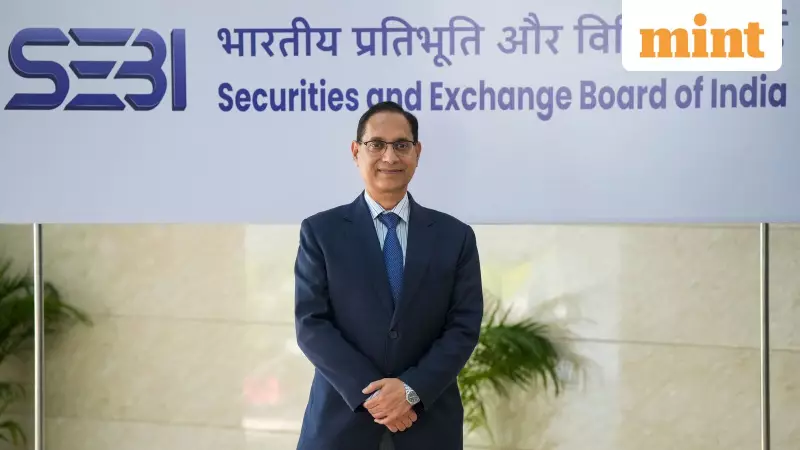
Market Regulator Launches Comprehensive Regulatory Clean-up
The Securities and Exchange Board of India (SEBI) has embarked on a significant overhaul of its Listing Obligations and Disclosure Requirements (LODR), marking one of the most substantial regulatory clean-up exercises in recent years. SEBI Chairperson Tuhin Kanta Pandey confirmed the development during his address at the Confederation of Indian Industries (CII) Financing Summit 2025.
The regulatory review, currently in its preparatory phase, aims to transform the existing framework into a more modern and efficient system. Pandey indicated that a consultation paper would be released shortly, though he refrained from providing a specific timeline for its publication.
Building a Smarter Regulatory Framework
Pandey emphasized that SEBI's primary objective is not to expand the regulatory rulebook but to refine it for better effectiveness. "Our agenda is not about adding more rules. It is about shaping a smarter rulebook", the SEBI chief stated at the industry event.
The revamped regulations will focus on three key principles: simplicity in understanding, proportionality to addressed risks, and support for innovation. This approach signals a fundamental shift in regulatory philosophy toward creating an environment that balances investor protection with market development.
The scale of this regulatory exercise is substantial, and Pandey acknowledged that "it will take some time" given the comprehensive nature of the review process. The regulator plans extensive consultations with market participants and stakeholders before finalizing the new framework.
Broader Regulatory Reforms Underway
Beyond the LODR review, SEBI is simultaneously advancing reforms in several other regulatory domains. The settlement regulation framework is also slated for revision, with a consultation paper expected soon. According to previous reports, the market watchdog aims to simplify and expedite settlement processes by allowing voluntary case resolutions before regulatory action.
Significant progress has already been made in reviewing stockbroker and mutual fund regulations, which Pandey described as "well advanced". The comprehensive reform initiative focuses on eliminating redundancies, clarifying ambiguities, and retiring outdated regulatory constructs.
In a parallel development, SEBI is preparing to introduce a closing-auction mechanism in equity markets. After extensive stakeholder consultations, the regulator is "close to enabling" this framework, which promises to enhance price discovery during the final trading minutes and reduce closing volatility.
This move aligns Indian market practices with global standards, where closing auctions are commonplace in mature markets. Stock exchanges have actively advocated for this change, recognizing its potential to improve market efficiency and stability.
The cumulative impact of these regulatory initiatives represents SEBI's strategic push toward creating a more robust, transparent, and efficient capital market ecosystem in India, positioning the country's financial markets for sustained growth and global competitiveness.





